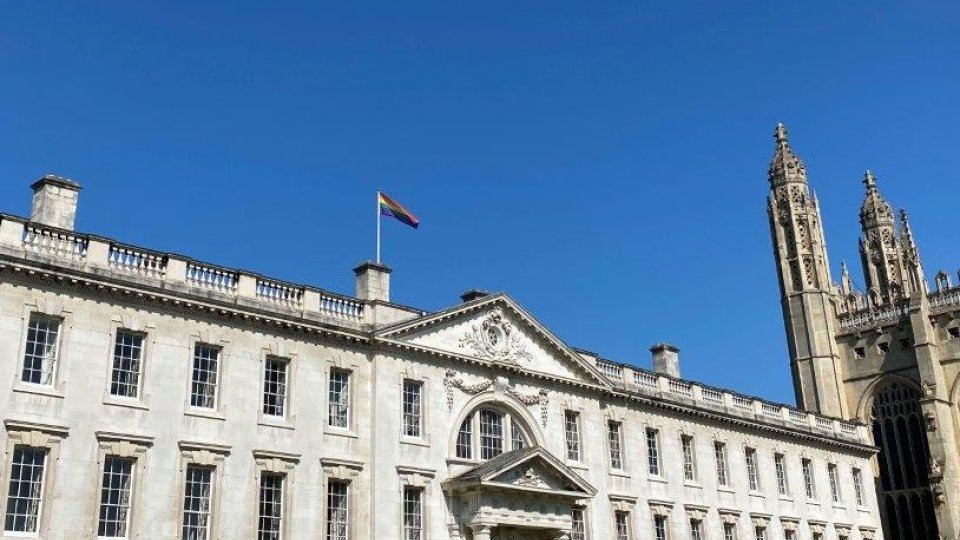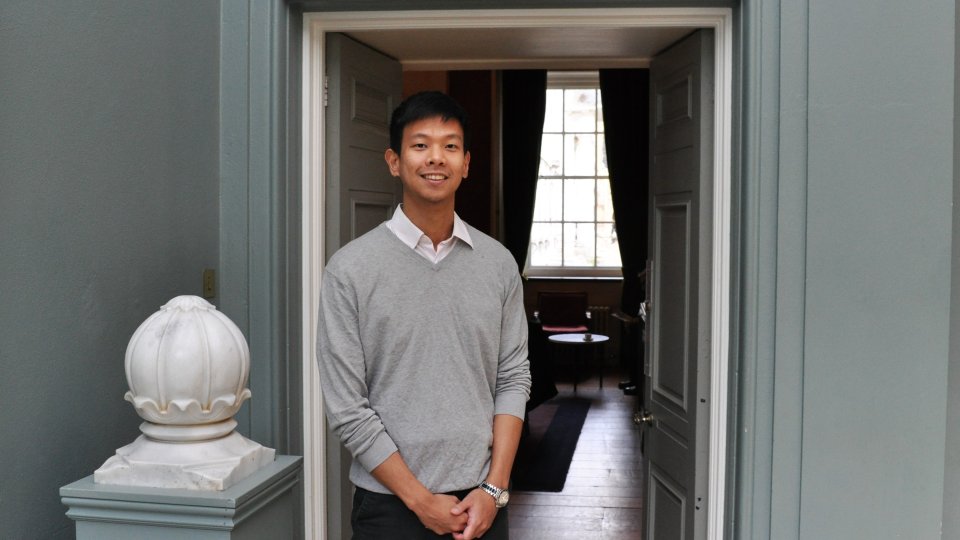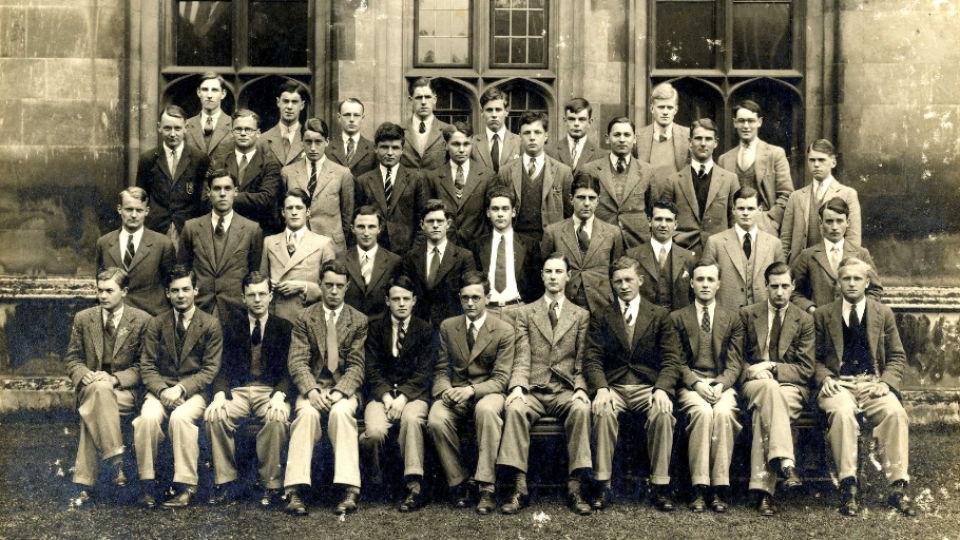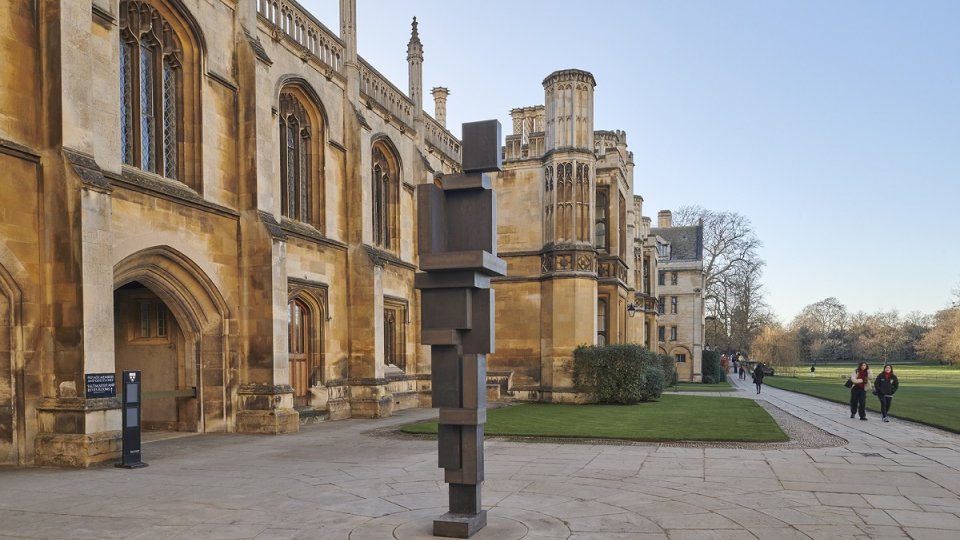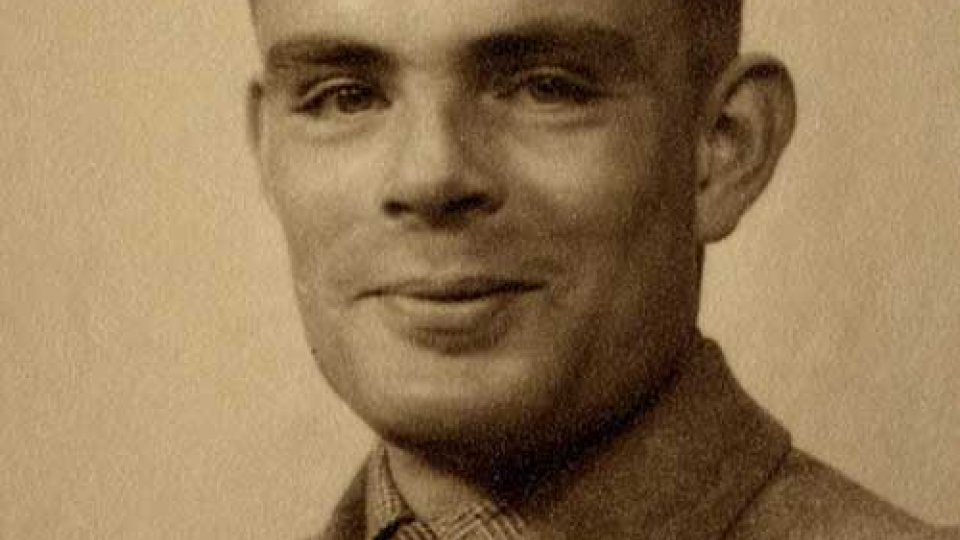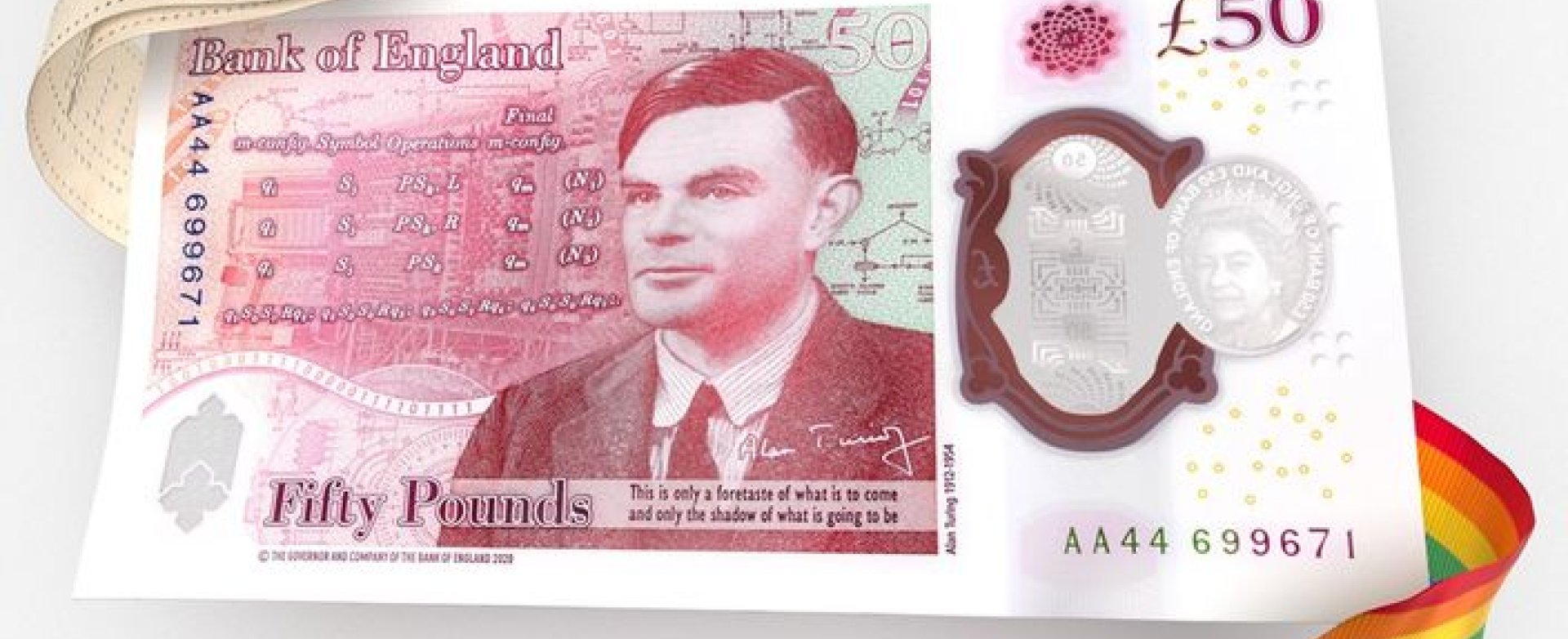
The new £50 banknote, featuring King's alumnus Alan Turing, will enter circulation from 23 June 2021 to coincide with Turing's date of birth. The design of the note celebrates his pioneering work with computers and features:
- A mathematical table and formulae from Turing’s seminal 1936 paper “On Computable Numbers, with an application to the Entscheidungsproblem” Proceedings of the London Mathematical Society. This paper is widely recognised as being foundational for computer science.
- The Automatic Computing Engine (ACE) Pilot Machine which was developed at the National Physical Laboratory as the trial model of Turing’s pioneering ACE design. The ACE was one of the first electronic stored-program digital computers.
- Ticker tape depicting Alan Turing’s birth date (23 June 1912) in binary code.
- Technical drawings for the British Bombe, the machine specified by Turing and one of the primary tools used to break Enigma-enciphered messages during WWII.
- The flower-shaped red foil patch on the back of the note is based on the image of a sunflower head linked to Turing’s morphogenetic (study of patterns in nature) work in later life.
- A series of background images, depicting technical drawings from The ACE Progress Report.
As it happens, Turing is not the only King's figure to appear on the note, as the signature of alumna Sarah John (KC 1996) also appears by dint of her being the Bank of England's Chief Cashier!
Turing was an undergraduate Mathematics student at King’s, gaining his degree with first-class honours in 1934. A year later, on the strength of his mathematical dissertation, he was elected a Fellow of the College.
In 1936 Turing developed his single most important idea, 'On Computable Numbers', which gave birth to the idea of a computer. His subsequent code-breaking at Bletchley Park during the Second World War is estimated to have saved over 14 million lives, shortening the war in Europe by several years through cracking the German ‘Enigma’ cipher.
After the war, Turing's highly original mathematical ideas and pioneering work in theoretical computer science continued. His 'Turing Test' examined the behaviour necessary for a machine to be considered intelligent, and was the foundation of what we now know as artificial intelligence.
In 1954, at the age of 41, Turing took his own life after being prosecuted for homosexual acts, still considered criminal in the UK at the time. Fifty-nine years later, in 2013, he was posthumously pardoned by Queen Elizabeth II.
The Alan Turing Initiative
The Alan Turing Initiative at King's pays homage to this profound thinker, whose pioneering ideas changed our world and continue to hold significant potential for our future. As part of the Initiative, we are aspiring to develop an ambitious new programme that will continue to transform our world, with a series of funding opportunities focusing on computer science, mathematics, biotechnology, and the history and politics of sexuality and gender.
To find out more about the Turing Initiative and how you can help, please see the Turing Initiative pages here.

